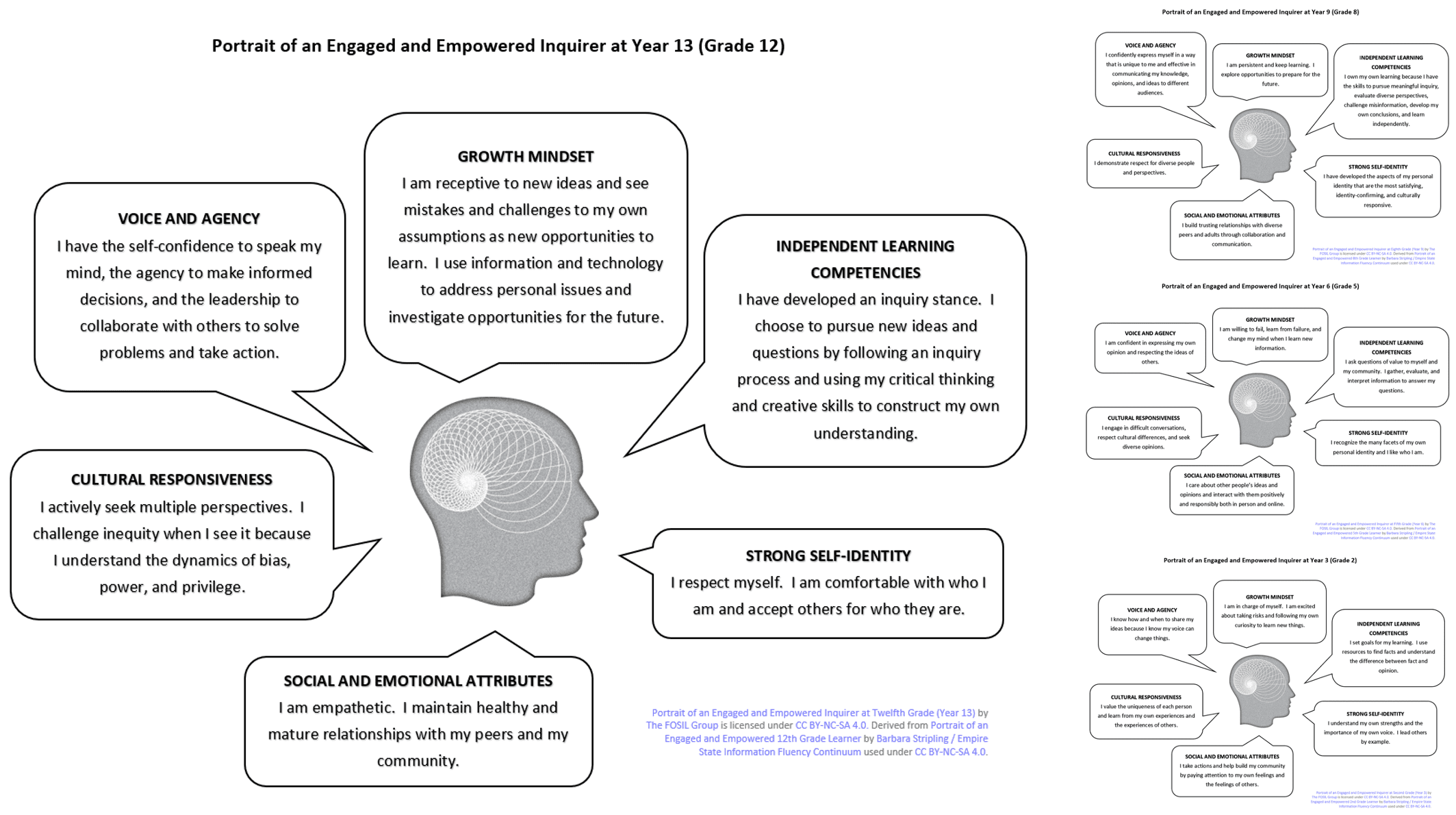Reply To: Discussing Education, Libraries and FOSIL With Elizabeth Hutchinson
Home › Forums › The nature of inquiry and information literacy › Discussing Education, Libraries and FOSIL With Elizabeth Hutchinson › Reply To: Discussing Education, Libraries and FOSIL With Elizabeth Hutchinson
Sorry, Elizabeth, I missed your posts here, so have copied across my replies from LinkedIn.
—
I have added our latests podcast (see above), with further thoughts on the problem of how what a school does, particularly in the classroom, combines to actually achieve what a school claims to aim to do. In conclusion, it is “increasingly clear that inquiry – properly understood and supported – enables the classroom both to achieve its aims in terms of acquiring knowledge and contribute directly to the school achieving its aims in terms of developing a certain type of person.
I am familiar with the Trivium & Quadrivium in the context of a classical liberal education: Trivium being grammar, logic, & rhetoric; Quadrivium being arithmetic, astronomy, music, & geometry. In this sense, they are subjects/disciplines. On some level, the content of the Trivium is relevant to the inquiry process, e.g., rhetoric in Express. Maritain, who we discussed on Saturday, makes a compelling and more helpful case for a contemporary liberal education (1967!), which “drastically revises the classical and medieval seven liberal arts, the Trivium and the Quadrivium, in order to provide for the vast development of knowledge [and the technological environment and means for producing it] in recent times and at the same time preserve the liberal character of education…On the level of universal knowledge…the liberal arts must be reintegrated so as to comprehend, as they once did, the physical sciences, the human sciences, the literary disciplines, and philosophy. The physical sciences, and others patterned upon them, must regain their humanistic character.” (pp. 17-18)
Maritain describes a contemporary liberal education as “fully human education…preparing the youth to exercise their power to think in a genuinely free and liberating manner—that is to say…it equips them for truth and makes them capable of judging according to the worth of evidence, of enjoying truth and beauty for their own sake, and of advancing, when they have become adults, toward wisdom and some understanding of those things which bring to them intimations of immortality” (1952, p. 3). The process of coming to know and understand reality on the strength of evidence is inquiry, which is why inquiry is a distinguishing feature of a contemporary liberal education. Maritain terms this freedom terminal freedom —“the fulfillment of the deepest potentialities of the human being in the world” (1967, p. 10), which is reflected in the portraits of an engaged and empowered inquirer (below – download as PNG image) and in my post above).



